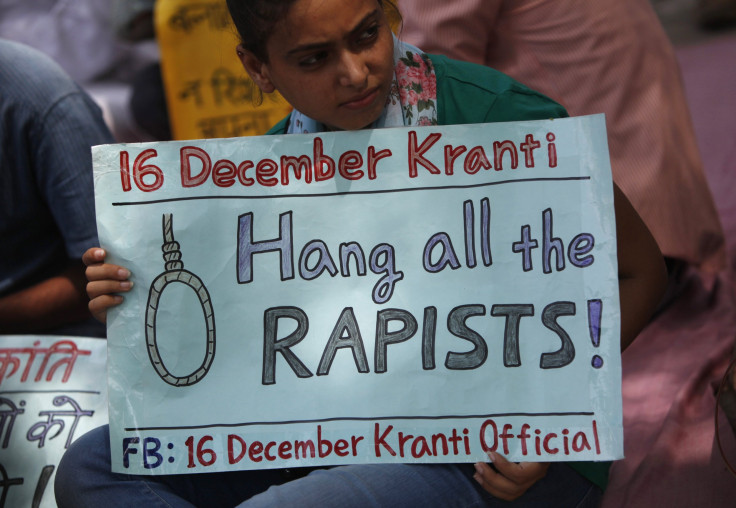BBC Documentary On 2012 Delhi Gang Rape Viewed In India Despite Ban; Reactions To 'India's Daughter'

A controversial BBC documentary featuring an interview with one of the men convicted in the 2012 gang rape of a 23-year-old woman in New Delhi, had been viewed by hundreds of thousands of people in India despite a ban. Authorities have been working to remove the documentary from online video-sharing sites like YouTube, after the BBC aired it in the U.K. on Wednesday night.
The Indian government had asked YouTube to take down the documentary -- titled “India’s Daughter” -- which was uploaded by several users and has been described by authorities as a “conspiracy to defame India." Gaurav Bhaskar, a spokesman for the video-sharing site, told The New York Times, that YouTube had complied with the government’s request to block channels carrying the video, but the original link posted by the BBC was still available to users.
“We believe that access to information is the foundation of a free society,” a spokeswoman for Google, which owns YouTube, reportedly said. “We continue to remove content that is illegal or violates our community guidelines, once notified.”
Authorities reportedly said that the BBC link to the video had been viewed over 100,000 times by Thursday night.
Government officials “have put their best heads together to find out the best course of action” to remove links to the film, “India’s Daughter,” which has been considered by various sections of Indian society, including rights activists, as offensive to women, and something that could incite a “law and order problem,” the Times reported.
The documentary, by British filmmaker Leslee Udwin, shows Mukesh Singh, one of the accused men awaiting execution, making misogynistic remarks blaming the woman for the rape.
“A girl is far more responsible for rape than a boy,” Singh says in the film. “A decent girl won’t roam around at 9 o’clock at night. ... Housework and housekeeping is for girls, not roaming in discos and bars at night doing wrong things, wearing wrong clothes.”
The documentary, which also includes interviews with the gang-rape victim’s parents and defense lawyers, was initially scheduled for a worldwide premiere on March 8 to mark International Women’s Day. However, the government banned its telecast after people protested against the film's release.
"We had asked to not release the documentary, but BBC still released it, and we will investigate and the MHA (Ministry Of Home Affairs) will take action accordingly... The conditions have been breached so action will be taken accordingly," India's Home Minister Rajnath Singh said Thursday, according to NDTV, a local news network.
Indian authorities also reportedly said that the government would act against the rapists' lawyers, who also made several controversial statements in the BBC documentary. “Girls are more precious than diamond. If you put the diamond on road then the dog will take it out. You can’t stop it,” one of the defense lawyers says in the film.
BBC Director of Television Danny Cohen said, in a statement, Thursday: "The purpose of including the interview with the perpetrator was to gain an insight into the mind-set of a rapist with a view to understanding the wider problem of rape and not just in India."
Here are some reactions from Indian celebrities and Twitter users on the controversial film:
I found #IndiasDaughter far more sensitively done than many angry ugly invasive debates on the same issue that happen on our TV channels.
— Chetan Bhagat (@chetan_bhagat) March 5, 2015The best way for the government to make us watch something is them saying please don't watch this.
— Chetan Bhagat (@chetan_bhagat) March 5, 2015Govt's decision to BAN #IndiasDaughter - a BBC documentary by an award-winning director - damages India's image the most.
— KABIR BEDI (@iKabirBedi) March 5, 2015Interviewing rapists is as old as journalism itself. And when their own words reveal them as monsters what's the problem? #IndiasDaughter
— KABIR BEDI (@iKabirBedi) March 5, 2015Haven't watched #IndiasDaughter . Don't intend to watch it either. But resent being made to watch India make a laughing stock of itself #ban
— Seema Goswami (@seemagoswami) March 5, 2015Disturbed after watching #IndiasDaughter, But glad i watched it. This is India's shame, this is our shame, this is my shame-#DeathOfHumanity
— Riteish Deshmukh (@Riteishd) March 5, 2015Victim Blaming needs to stop. Banning the doc doesn't solve anything. Stop rape, stop this mentality #IndiasDaughter pic.twitter.com/E3QIc1xmnD
— EXSO Photography (@xonive_) March 6, 2015I believe #IndiasDaughter is a fair, balanced film - looks at the tragedy from the perspectives of the victim, the criminals, the society!
— Aseem Chhabra (@chhabs) March 5, 2015© Copyright IBTimes 2024. All rights reserved.




















